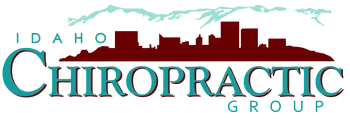- posted: Jun. 11, 2018
Drug-Free High School Sports: Talk to Your Children about Steroids
The use of anabolic steroids is a hot sports issue. Rumors surrounding a handful of professional baseball players, the strengthening of Major League Baseball's drug-testing policy, and the signing of the Anabolic Steroid Control Act of 2004 have led to serious concerns about the integrity of the public's favorite sports and the example professional and world-class athletes are setting for young people.The issue also has implications for young athletes who feel that they won't have a competitive edge without steroids or other performance enhancers. While professional athletes have a variety of trainers, nutritionists, and health care specialists available, kids are on their own. And unlike international, professional, and collegiate sports competitions and programs, high school sports programs rarely test for steroid use.1
Despite widespread media coverage and warnings about the risks of anabolic steroids-which include fertility problems, potentially irreversible masculine traits in females and breast enlargement in males, toxic effects on the liver and cardiovascular system, arrested growth, and damaging psychiatric side effects-kids keep taking them. Desire to improve athletic achievements aside, some kids begin steroids because of low self-esteem and peer pressure. They want to win and think they look much better on steroids. Some young athletes say that steroids make them feel invincible and they refuse to believe that the side-effects are real.
According to a National Institute on Drug Abuse survey, anabolic steroids were used at least once by 1.4% of 8th graders, 1.7% of 10th graders, and 2.1% of 12th graders in 2003.2 Nationwide, 6.1% of students had taken oral or injected steroids without a doctor's prescription at least once.3 The motivation to use steroids often comes from peer pressure and even parental demands to achieve greater goals. In addition, some teenagers simply want to look better.
What are the signs of steroid use?
- Increased weight gain in a short period of time
- The face may look puffy and bloated because of water retention
- Increased acne on the face, chest, and back
- Mood swings and irritability
- Masculine features in girls-facial hair, deepening of the voice, and many others
- Obsession with training: questions about sports nutritional supplements-creatine, glutamine, and others-should raise a red flag
- Increased joint injuries
How do you start a conversation about steroids with your child?
As with any touchy topic, you need to know how to ask the right questions to facilitate dialog without alienating your children.
- Be yourself and invite conversation
- Ask your athlete children how their exercise is going
- Ask if they are doing anything new to get an edge
- Start questions about supplements-ask if they are using any
- Approach talking about steroids tactfully. Open up the conversation. Explain that it's all about choices. Every single athlete at some point needs to decide whether to achieve his or her greatest potential naturally-or cheat by using steroids or similar substances
- Observe your children's friends and their friends to see if they are developing muscle mass quickly, appear nervous, have mood swings, seem different, spend lots of hours in the gym or working out
- Make sure to also check your own children. If your child exhibits symptoms, have him or her tested for steroid use. If the test results are positive, seek professional help. Steroids affect the brain as much as they affect the body, so kids often need the counseling of a sports psychologist
What do teenagers need to know about steroids?
- Steroids can seriously harm or even kill you. The side effects include fertility problems, potentially irreversible masculine traits in women and breast enlargement in men, toxic effects on the liver and cardiovascular system, slowed growth, and damaging psychiatric side effects
- Steroids won't make you a better athlete. They build the muscle, but they don't improve the skills. They don't improve hand-eye coordination, balance, reaction, or reflexes, which are all neurological factors. To be competitive in most sports, it's the skills that need to get better
- Taking steroids is cheating. It interferes with fair competition. Instead of taking a shortcut, strive to achieve your best potential naturally. Set realistic goals and praise yourself when you achieve them
- Encourage your athlete children to talk to your doctor of chiropractic about improving their athletic performance naturally. Your doctor of chiropractic can coach your children on proper rest, recuperation, and training techniques to reduce the risk of injuries. He or she can teach your children proper nutrition to help them achieve their greatest potential
Which Substances Are Banned?
Many organizations are addressing the use of performance-enhancing drugs, or "doping," and anabolic steroids are not the only banned substances.
The United States Anti-Doping Agency's (USADA) position is that the use of any supplement places the athlete at risk. Vitamins, minerals, amino acids and proteins alone are not banned; however, the USADA cannot provide assurance that any supplement is allowable. Many supplements contain materials not identified on the label and may include a prohibited substance that could potentially result in a doping violation.
The general list of USADA banned substances includes:
- Anabolic and androgenic steroids
- Steroid precursors, also known as prohormones, which convert to testosterone in the body
- Dehydroepiandrosterone (DHEA) and androstenedione
- Herbal and other products with a diuretic effect. Diuretics are used to flush out liquids quickly in athletes who compete in weight categories-which happens in wrestling. Diuretics can cause serious health side effects
- Stimulants, such as ephedrine
For a complete list of banned substances and for
references, view the pdf format by clicking here.
Visit the National Coalition for the Advancement of Drug-Free Athletics at by clicking here.
Office Hours
Monday
9:00 am - 5:30 pm
Tuesday
7:00 am - 1:00 pm
Wednesday
8:00 am - 2:00 pm
Thursday
9:00 am - 5:30 pm
Friday
7:00 am - 1:00 pm
Saturday
9:00 am - 11:00 am
Sunday
Closed
Monday
9:00 am - 5:30 pm
Tuesday
7:00 am - 1:00 pm
Wednesday
8:00 am - 2:00 pm
Thursday
9:00 am - 5:30 pm
Friday
7:00 am - 1:00 pm
Saturday
9:00 am - 11:00 am
Sunday
Closed



